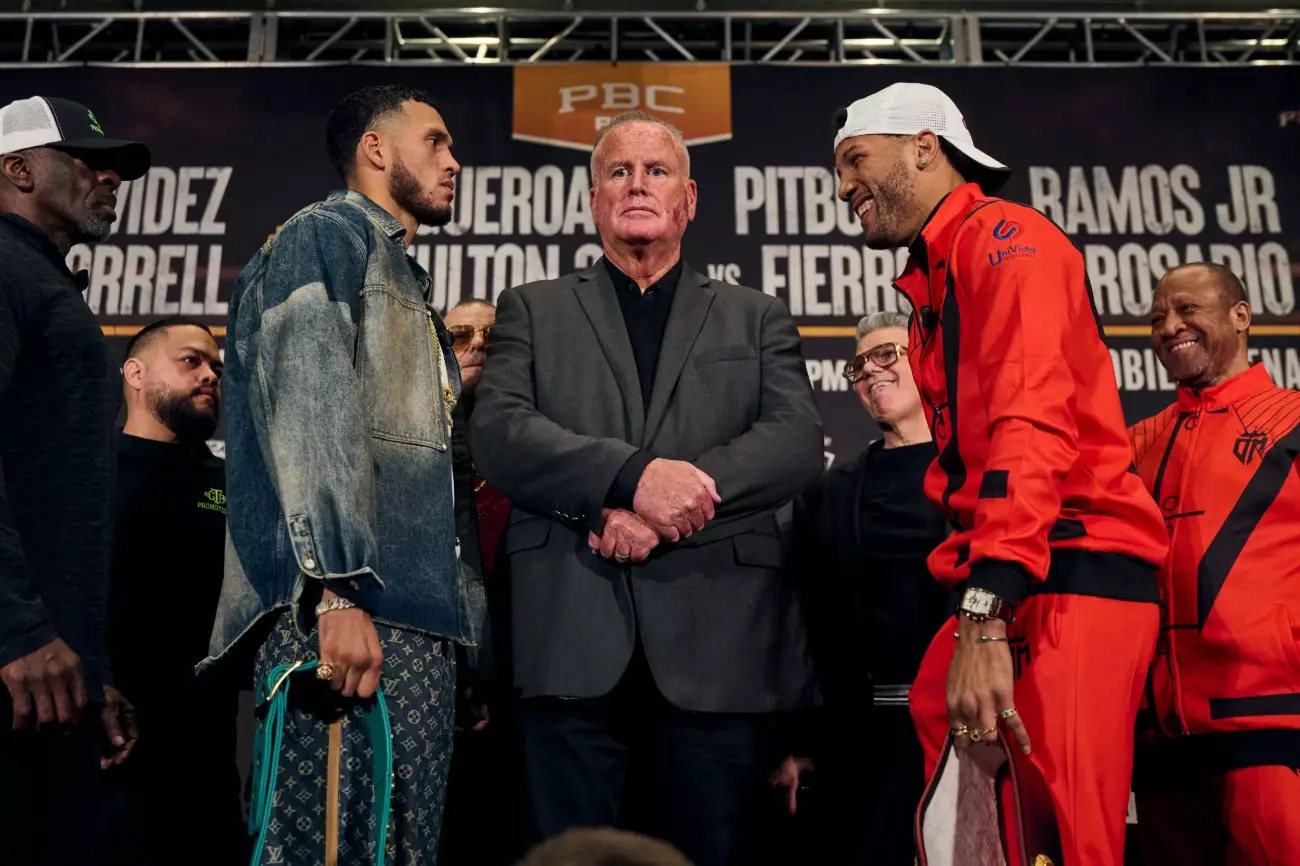Upcoming matchups in boxing often generate a fervor all their own, particularly when personalities clash during press conferences. The recent face-off between David Benavidez and David Morrell was no exception. As both fighters prepared for their showdown this Saturday, the intensity reached a boiling point during their final press appearance. Benavidez, with an impressive record of 29 wins and 24 knockouts, was visibly on edge as he attempted to psych out Morrell, the WBA ‘regular’ light heavyweight champion boasting an unbeaten record of 11 wins and 9 knockouts.
The contrasting demeanors of the two fighters painted a vivid picture of their competitive psyches. While Benavidez exuded an aura of frustration and aggression, Morrell appeared calm and collected. This was intriguing, as it challenged expectations: usually, it’s the favorite that displays confidence and the underdog that appears anxious. Benavidez’s aggressive antics seemed almost desperate, stirring speculation about his mental state leading into such a pivotal fight.
The tension escalated when Morrell faced off against Benavidez verbally, branding him a “phony Mexican Monster.” Such words clearly struck a nerve, leading Benavidez to lose composure. Merely being compared to the likes of past boxing legends can either motivate a fighter or send him spiraling. In this case, it was a clear trigger for Benavidez, whose furious outbursts suggested he felt deeply insecure about his legacy and competitive reputation.
Morrell’s manager, Luis Decubas Sr., added gas to the fire when he delivered a bold interview stating that Morrell’s punching power was reminiscent of the legendary Sonny Liston. As Decubas tried to share insights during the press conference, Benavidez interrupted, not allowing Decubas the honor to speak. This behavior underscored Benavidez’s fragile state and suggested he was attempting to assert dominance, though it ultimately backfired, offering more ammunition for Morrell to dismantle Benavidez’s mental fortitude.
Perhaps one of the most striking elements of the presser was Morrell’s criticism of Benavidez’s reputation. By asserting that Benavidez often fought fighters on the verge of retirement, Morrell painted a portrait of his opponent as someone who built a record on the backs of lesser talent. In boxing, perception is almost as important as skill; Morrell’s candid remarks posed a significant challenge to Benavidez’s carefully crafted image.
Morrell’s approach—direct and unassuming—created an air of respect and credibility while exposing Benavidez to a whirlwind of ridicule. As Morrell pointed out the contradictions in Benavidez’s bravado, he established his persona as a humble yet confident contender ready to seize the opportunity for recognition. This differentiation was pivotal and set the stage for a compelling narrative leading into their anticipated bout.
As the clock ticks down to fight night, both fighters are poised at crucial junctures in their careers. Benavidez insists he will showcase “El Monstro” when the bell rings, guaranteeing an onslaught meant to overwhelm Morrell. However, with Morrell’s unwavering confidence, it appears clear that the psychological battle might be just as significant as the physical one.
In the world of boxing, mind games can determine outcomes as much as punches thrown or evasive maneuvers. With stakes high and reputations on the line, fans can expect a titanic clash in the ring—one shaped not only by what happens physically but also by the drama brewing in the lead-up. As the fighters shift from press conference tension to fight night anticipation, the stage is set for a memorable showdown—one that could redefine both their paths in the realm of boxing.

